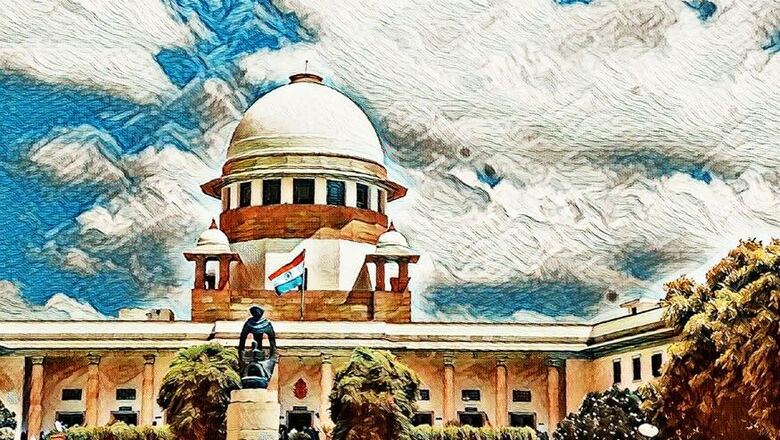
views
New Delhi: The Supreme Court on Wednesday struck down and held invalid the exception clause to rape provision in the Indian Penal Code. It stated that sexual intercourse with a minor wife in the age group of 15 to 18 would be a crime and amount to rape.
The apex court, which had earlier stated that it does not wish to get into the domain of marital rape, said that the age of consent is 18 years for a woman and that cannot be whittled down. The two-judge bench said that sexual intercourse with a wife between 15 and 18 will amount to rape.
The SC relied on the Child Marriage Prohibition Act too to reach this conclusion. The court said that immunity cannot be granted to a husband who is having sexual intercourse with his wife in this age group.
This verdict will not have a retrospective effect.
A petition by NGO Independent Thought had challenged the exception clause (2) under Section 375 IPC (which deals with rape) that says intercourse or sexual act by a man with his wife, not below 15 years, is not rape. This created a dichotomy as the age of consent was 18 years, it was contended.
The petitioners had contended that it is against the interest of the girl child as well. The court on Wednesday said that there can be no legal protection be given under Section 375 (2) of the IPC.
The petitioners prayed that the clause be struck down as it is “violative of Articles 14, 15 and 21 of the Constitution”.
While hearing the plea, the court had asked the Centre how Parliament could create such an exception in the law. The apex court, however, clarified that it did not want to go into the aspect of marital rape, but asked why such an exception was created when the age of consent was 18 years for “all purposes”.
The Centre replied that doing away with this exception would open up the domain of marital rape, which does not exist in India. The Centre’s counsel had referred to the concept of age of puberty among Muslims for the purpose of marriage and said these aspects have been deliberated upon by Parliament before arriving at a conclusion.
The petitioners also contended that the exception clause went against the objectives of the Prohibition of Child Marriage Act and was also in violation of international conventions to which India was a signatory.




















Comments
0 comment